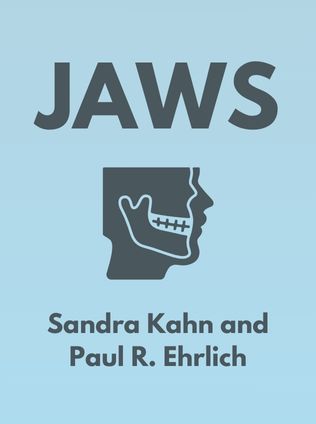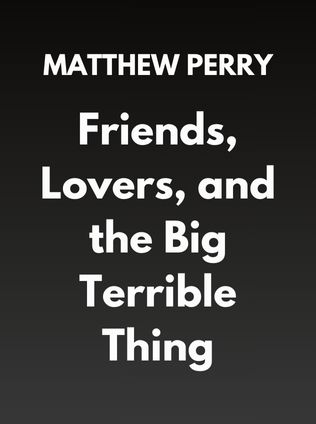
About the Author
Sandra Kahn and Paul R. Ehrlich bring a unique blend of expertise to their collaborative work, "Jaws." Kahn is a practicing orthodontist with over 25 years of clinical experience. She holds degrees from the University of Mexico and the University of the Pacific and is certified by the American Board of Orthodontics. Her extensive hands-on experience in oral health and jaw development gives her a grounded perspective on the growing epidemic of jaw deformities.
Paul R. Ehrlich, on the other hand, is a distinguished biologist and ecologist, widely known for his groundbreaking work in population studies and biodiversity conservation. He serves as professor emeritus of Population Studies in the Department of Biological Sciences at Stanford University and is the president of the Stanford Center for Conservation Biology. Ehrlich's deep understanding of biology and epidemiology enriches the scientific discussions in "Jaws," particularly in examining the evolutionary and ecological implications of modern jaw issues.
Main Idea
"Jaws" uncovers a hidden epidemic resulting from our modern lifestyle: jaw deformities that lead to a myriad of health problems, from chronic pain to sleep apnea. The book asserts that the decrease in average jaw size, driven by factors like soft diets and mouth breathing, has led to widespread orthodontic issues, affecting millions of people globally. The authors emphasize the urgent need for parents to help their children develop healthy jaws and for the medical community to address these concerns with the seriousness they deserve.
Table of Contents
- Introduction: The Hidden Epidemic
- The Evolutionary Background of Our Jaws
- Modern Diets and Their Impact on Jaw Development
- Mouth Breathing and Its Consequences
- The Global Prevalence of Jaw Deformities
- Health Issues Stemming from Poor Jaw Structure
- Social and Psychological Impacts of Deformed Jaws
- Prevention and Correction of Jaw Deformities
- Conclusion: A Call to Action
The Evolutionary Background of Our Jaws
The evolution of the human jaw is a fascinating journey that reflects the changing demands placed on our ancestors. Kahn and Ehrlich begin by exploring how ancient humans had far better oral health despite lacking modern dental care. Our ancestors used their teeth for labor-intensive tasks like tearing raw meat and grinding uncooked vegetables. This intense use naturally led to strong jaw muscles and healthy teeth, avoiding many of the dental issues prevalent today.
"Skeletons show that ancient humans wouldn’t have needed braces even if they could have made them because their teeth naturally grew straight." - Sandra Kahn and Paul R. Ehrlich
In contrast, modern humans, with their softer diets and less demanding lifestyles, have developed smaller jaws that struggle to accommodate all their teeth. This leads to crowded, crooked teeth, making braces and wisdom tooth extractions common. The authors draw parallels between humans and animals, noting that wild animals, who consume tougher, raw diets, tend to have healthier teeth compared to domesticated animals fed processed food.
The decline in jaw size and health is not just a random occurrence but a direct result of the shift from a lifestyle that required constant physical exertion to one that is largely sedentary. This shift is reflected in the archaeological record, where the jaws of early humans are markedly larger and more robust than those of modern humans. This physical evidence serves as a stark reminder of how our modern conveniences have come at a cost to our health.
Modern Diets and Their Impact on Jaw Development
One of the central themes in "Jaws" is the profound impact that modern diets have had on jaw development. Kahn and Ehrlich argue that our diet, which increasingly consists of processed, soft foods, is a major contributor to the epidemic of jaw deformities. These foods require minimal chewing, depriving the jaw of the exercise it needs to develop properly. This lack of exercise leads to underdeveloped jaws that cannot accommodate all teeth, resulting in crowded and crooked teeth, and various other oral health issues.
"Our jaws don’t get the kind of exercise they’re evolutionarily designed for, resulting in underdeveloped or deformed jaws." - Sandra Kahn and Paul R. Ehrlich
Moreover, the shift in diet has also altered the bacterial environment in our mouths. The modern diet, rich in sugars and carbohydrates, fosters bacteria that promote tooth decay. This contrasts sharply with the diet of our ancestors, which naturally helped maintain a healthier oral environment. The authors highlight how this change in diet has created a vicious cycle where poor oral health leads to a greater reliance on processed foods, further exacerbating the problem.
The implications of these dietary changes extend beyond oral health. Kahn and Ehrlich suggest that the lack of proper jaw development may be linked to a variety of chronic health conditions, including sleep apnea and temporomandibular joint (TMJ) disorders. They argue that by understanding and addressing the root causes of jaw underdevelopment, we can mitigate these broader health issues and improve overall well-being.
Mouth Breathing and Its Consequences
In addition to diet, Kahn and Ehrlich identify mouth breathing as a significant factor contributing to jaw deformities. Mouth breathing, especially when it becomes a habitual practice, can have serious consequences for jaw development. The tongue, which should naturally rest against the roof of the mouth, provides crucial support for the upper jaw. However, when we breathe through our mouths, the tongue drops down, removing this support and leading to a narrowing and sagging of the upper jaw.
Sign up for FREE and get access to 1,400+ books summaries.
You May Also Like
The Subtle Art of Not Giving a F*ck
A Counterintuitive Approach to Living a Good Life
By Mark MansonHow To Win Friends and Influence People
The All-Time Classic Manual Of People Skills
By Dale CarnegieFreakonomics
A Rogue Economist Explores the Hidden Side of Everything
By Steven D. Levitt and Stephen J. DubnerQuiet: The Power of Introverts
The Power of Introverts in a World That Can't Stop Talking
By Susan Cain



















